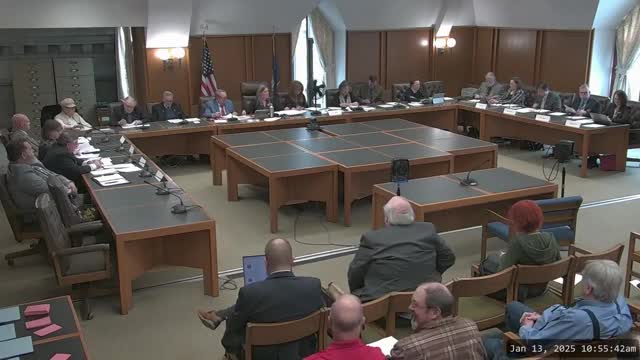NH committee hears bill to let towns charge flat fee for unregistered RVs on campgrounds
Get AI-powered insights, summaries, and transcripts
Subscribe
Summary
Supporters said a fixed fee would cut assessor workload and collection problems; campground owners and associations warned the proposal shifts enforcement burdens and is unclear on fee calculation.
The New Hampshire House Municipal and County Government Committee on Jan. 13 heard testimony on House Bill 84, which would let municipalities impose a fixed fee—up to $200 annually—instead of assessing real-estate property tax on unregistered recreational vehicles located on campground lots.
Supporters said the change would reduce the hours assessors spend identifying owners, tracking registration status and pursuing small tax bills; opponents said it would create new administrative burdens for campground owners and leave unclear who is responsible for collection and how fees would be calculated.
Representative Faulkner, the bill’s prime sponsor, described the current process: each April 1 campgrounds report RVs on-site and assessors attempt to determine which are registered. He said local assessors and tax collectors told him the work of tracking ownership—often out-of-state owners, sales with no forwarding address, incomplete titles—consumes more staff time than the tax revenue recovered. Faulkner described the proposal as a local option allowing selectboards to set a fixed fee up to $200 and said towns could keep collecting real property tax instead if they preferred.
Michael Brantley, town administrator for Swansea, said Swansea taxed about 60 unregistered RVs in 2024, producing average tax bills of about $114. Brantley said the town collected roughly $47,100 total but that collection and abatements left only a small share retained locally; taxing unregistered RVs requires assessor inspections and follow-up that often cost more than the revenue generated.
Jeremy Spritz, executive director of the New Hampshire Campground Owners Association, opposed the bill as drafted. He said the association was not consulted and called the draft language “complex” and “open to broad interpretation,” including whether the municipal fee would supplement or replace existing taxes. Spritz said the amendment as written risks shifting enforcement duties onto campground owners, who are not tax collectors, and that unclear valuation rules would perpetuate inconsistent treatment of RVs.
Campground operators echoed those concerns. Richard Sullivan of Harbor Hill Campground in Meredith said campgrounds have been disproportionately targeted; he told the committee assessors regularly inspect campgrounds while similar trailers and box trailers on private properties go unchecked for years. Dave Mancus, treasurer of the New Hampshire Campground Association and lifelong campground owner, said he initially thought the proposal would reduce work for camp owners but read it as potentially adding a new charge; he asked for clarity whether the fee would be “instead of” tax or an additional charge.
The New Hampshire Municipal Association testified in support, saying the proposal began as a member request from Swansea and other towns to make assessment and collection more workable. NHMA said a flat fee could streamline assessing and reduce disputes about registration status or mistaken billing.
Committee members asked about several technical points, including whether covered units with substantial additions (porches, enclosed attachments) would be treated as real property, and how towns would set fee amounts. Faulkner said the bill leaves the choice to the municipality but includes a $200 maximum; Brantley and others urged amendments to clarify fee calculation and collection mechanics.
The committee took testimony from business and municipal representatives and closed the public hearing with no vote recorded. Committee members and witnesses repeatedly urged clearer language on whether the fee replaces or supplements property tax and on who would be responsible for collection and enforcement.
The measure remains in committee for further drafting and possible amendment.
